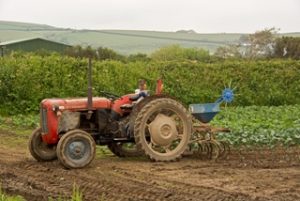Unless farmers, food companies and retailers can make a profit switching to more sustainable production methods and consumers can afford sustainably produced products, the food systems transition that everyone now agrees is necessary, simply won’t happen.
.
We need to be rethinking our food – post-covid, post-brexit and post-pretty much everything:
Rethinking Food – Vision Group for Sidmouth
Henry Dimbleby gives us a way foward:
Home – Part One – National Food Strategy
As followed by the national press:
Henry Dimbleby has published the first phase of his year-long review of the United Kingdom’s food network. The report focusses on two areas: the problem of childhood hunger and the shape of British trade policy for food and farming after Brexit…
What exactly those standards will be will, inevitably, have to be informed by the second phase, which will cover the operation of Britain’s food networks, the implications of that for biodiversity and sustainability, and its potential to be a source of new diseases and novel pandemics. It will report at the end of the year.
The British government’s national food strategy is a step in the right direction
Patrick Holden of the Sustainable Food Trust writes with an eye on the next phase:
.
If we want to make sustainable food and farming mainstream, it’s all about the money! Actually, it always was. By that I mean, unless farmers, food companies and retailers can make a profit switching to more sustainable production methods and consumers can afford sustainably produced products, the food systems transition that everyone now agrees is necessary, simply won’t happen…
 Essentially, we have a dishonest food pricing system and if this was corrected, sustainable farming methods would more than hold their own economically. Farmers, in general, aren’t getting much support from retailers either to help them become more sustainable. The exceptions are the fortunate entrepreneurial few who have switched to organic farming and are selling food with a story and adding value through processing…
Essentially, we have a dishonest food pricing system and if this was corrected, sustainable farming methods would more than hold their own economically. Farmers, in general, aren’t getting much support from retailers either to help them become more sustainable. The exceptions are the fortunate entrepreneurial few who have switched to organic farming and are selling food with a story and adding value through processing…
The problem, as I see it, is that the Government has taken the opportunity of Brexit to make a dramatic change and swing the pendulum too far in the opposite direction, urged on strongly, I have to say, by well-meaning but poorly-informed conservation organisations that know little about the practicalities of food production. Superficially, the Government’s determination only to reward environmental outcomes and not the production of food may sound good on paper, but in reality, it is likely to result in increased intensification on some farms and the abandonment of food production on the rest. Right now, the indications coming from Defra are not encouraging. The current proposed approach to ELMs (Environmental Land Management scheme) payments is to divide the money into three, with a third going for foundation level good environmental practice, and two other tiers rewarding specific environmental projects and money for other measures, such as reforestation and new technological solutions to reduce pollution.
If the ELMs cake is divided into three in this way with equal levels of support for each tier, this would mean that farmers adopting more sustainable practices would only get a third of £80, in other words just under £27 per acre, nowhere near enough to persuade them to make radical changes to their farming systems – and it is radical changes that we need! …
Instead Defra is sitting on the fence, mouthing platitudes about technical innovation, still hanging on to the concept of stewardship and paying too much heed to the conservation organisations and the Treasury – the latter of which would willingly sacrifice thousands of small family farms on the altar of free trade with America.
If we want sustainable food systems, it’s all about the money! – Sustainable Food Trust – Sustainable Food Trust
If We Want Sustainable Food Systems, it’s All About the Money! – Resilience